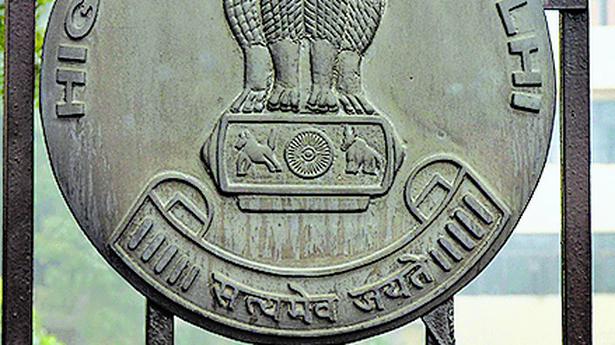
Delhi HC remark on conversion ‘right’ raises questions
The Hindu
A 1977 SC judgment says Article 25 does not bestow such a right
Recent observations by the Delhi High Court that religious conversion, unless forced, is not prohibited raise a question if proselytism is also protected under the right to religious freedom in the Constitution.
A few days ago, the High Court, hearing a petition by advocate Ashwini Upadhyay to frame laws to prohibit religious conversions by force or deception, observed that “first and foremost, conversion is not prohibited. It is a right of an individual to profess any religion, religion of his birth, or religion that he chooses to profess. That is the freedom our Constitution grants”.
Article 25(1) of the Constitution says that “subject to public order, morality and health... all persons are equally entitled to freedom of conscience and the right to freely profess, practise and propagate religion".
Though a person has a right to 'profess' or affirm his allegiance to a religion, does Article 25 extend the right to “propagate” one’s religion to converting another to one’s faith?
Mr. Upadhyay had reportedly alleged in the High Court that “mass conversions” of socially and economically underprivileged people, particularly those belonging to the Scheduled Castes and the Scheduled Tribes, were happening.
In its 1977 judgment, a five-judge Bench of the Supreme Court, in Rev. Stainislaus versus State of Madhya Pradesh, had held that the word ‘propagate’ in Article 25 does not give “the right to convert another person to one's own religion, but to transmit or spread one's religion by an exposition of its tenets”.
The Constitution Bench had also held there was “no fundamental right to convert another person to one's own religion”. Freedom of religion is not guaranteed in respect of one religion only, but covers all religions alike. “If a person purposely undertakes the conversion of another person to his religion, as distinguished from his effort to transmit or spread the tenets of his religion, that would impinge on the ‘freedom of conscience’ guaranteed to all the citizens of the country alike,” the 1977 judgment had reasoned.

“Writing, in general, is a very solitary process,” says Yauvanika Chopra, Associate Director at The New India Foundation (NIF), which, earlier this year, announced the 12th edition of its NIF Book Fellowships for research and scholarship about Indian history after Independence. While authors, in general, are built for it, it can still get very lonely, says Chopra, pointing out that the fellowship’s community support is as valuable as the monetary benefits it offers. “There is a solid community of NIF fellows, trustees, language experts, jury members, all of whom are incredibly competent,” she says. “They really help make authors feel supported from manuscript to publication, so you never feel like you’re struggling through isolation.”

Several principals of government and private schools in Delhi on Tuesday said the Directorate of Education (DoE) circular from a day earlier, directing schools to conduct classes in ‘hybrid’ mode, had caused confusion regarding day-to-day operations as they did not know how many students would return to school from Wednesday and how would teachers instruct in two modes — online and in person — at once. The DoE circular on Monday had also stated that the option to “exercise online mode of education, wherever available, shall vest with the students and their guardians”. Several schoolteachers also expressed confusion regarding the DoE order. A government schoolteacher said he was unsure of how to cope with the resumption of physical classes, given that the order directing government offices to ensure that 50% of the employees work from home is still in place. On Monday, the Commission for Air Quality Management in the National Capital Region and Adjoining Areas (CAQM) had, on the orders of the Supreme Court, directed schools in Delhi-NCR to shift classes to the hybrid mode, following which the DoE had issued the circular. The court had urged the Centre’s pollution watchdog to consider restarting physical classes due to many students missing out on the mid-day meals and lacking the necessary means to attend classes online. The CAQM had, on November 20, asked schools in Delhi-NCR to shift to the online mode of teaching.









